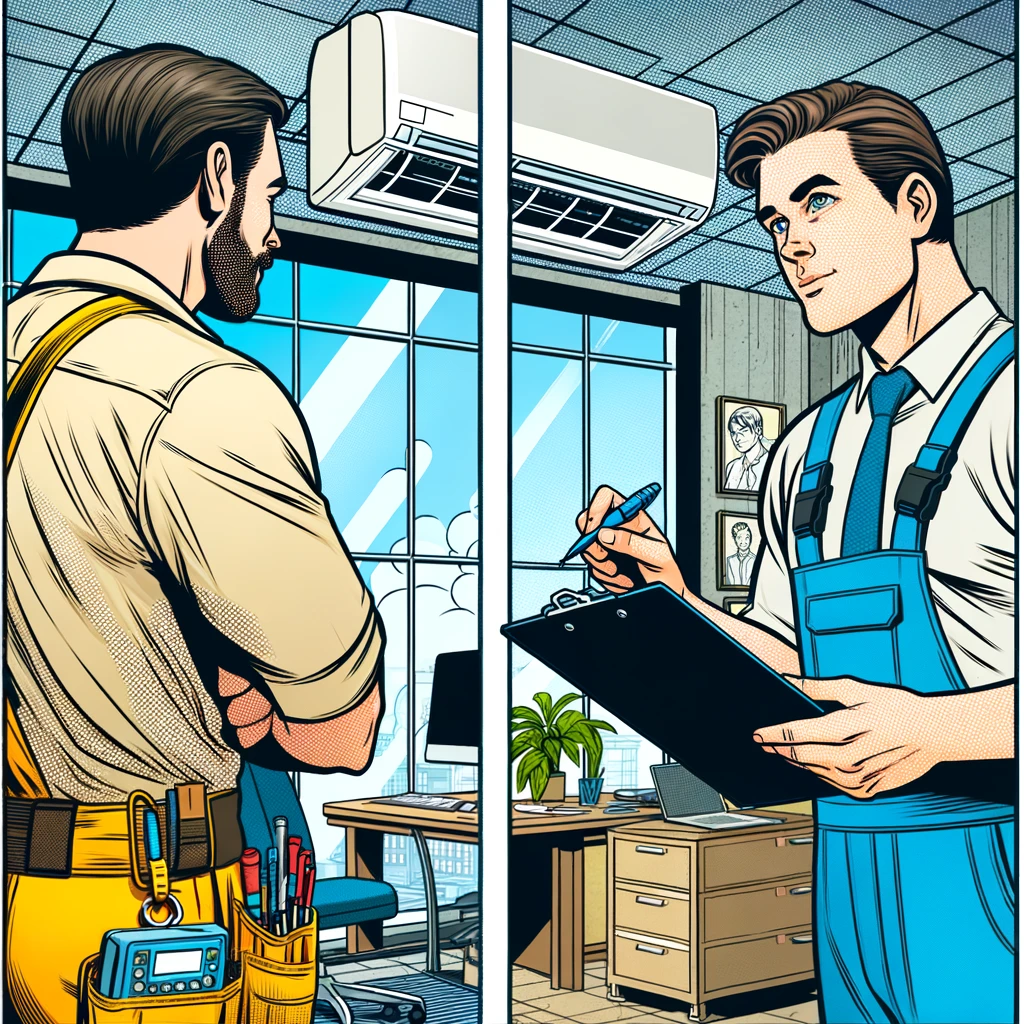Commercial building owners have many responsibilities, not the least of which is HVAC maintenance. It’s easy to forget, but the consequences can be costly and severe. Follow this checklist for easier and more efficient heating and cooling system maintenance.

Regular Air Filter Changes
Air filters catch dirt, dust, and debris, keeping them out of your building. They get clogged easily, however, restricting airflow, burdening the system, and wasting energy. As part of an overall commercial HVAC maintenance program, change the air filter every 90 days or more often under challenging conditions.
Scheduled Inspections
If your building has a maintenance manager, they should inspect the HVAC system regularly. Many owners don’t perform visual inspections unless something is wrong—and by then, it’s too late for a quick fix. During the inspection, look for rust, leaks, loose connections, vent blockages, and corroded refrigerant lines, among other problems.
Bi-Annual Recalibration
Commercial clients use their HVAC systems differently during the winter and the summer. Unfortunately, many building owners forget about recalibrating them to suit their changing needs. We suggest checking and adjusting these systems twice a year before the heating and cooling seasons start. With regular readjustments, you’ll save energy and money.
Cleaning and Checking Drainage Lines
Your building’s heating and cooling system creates significant water vapor, which must be routed away and eliminated. With time, condensate drainage lines may become clogged, and regular checks and cleanings are essential. During drainage line inspections, be sure to empty the collection tray to prevent mold growth and bacterial buildup.
Cleaning Condenser and Evaporator Coils
A commercial HVAC system’s condenser and evaporator coils attract dust, dirt, debris, and buildup as air comes through. Just as a clogged air filter will, a blocked coil will affect the system’s efficiency and performance. Clean the coils at least once per year, or more often if necessary.
Checking the Fans and Reducing Noise Levels
Commercial heating and cooling systems make more noise than residential units, but there are crucial distinctions between normal and concerning sounds. Moving parts, including fan motors, may need lubrication or adjustment if they’re making too much noise. Licensed HVAC technicians will use the right type of lubricant for quiet, safe operation.
Removing Debris From Outdoor Components
Commercial HVAC systems with outdoor components must be checked regularly for airflow restrictions. Most buildings have multiple or large outdoor units, which technicians are qualified to clean and service.

Checking Electrical Connections
Industrial AC units use complex electrical systems to remain functional. Therefore, regular inspection of electrical connections and wiring will identify issues and prevent malfunctions. Electrical work is dangerous, and hiring an HVAC professional will minimize the risk of on-the-job injury.
Follow the Checklist for Safe, Reliable, and Efficient HVAC Operation
Most building owners only call heating and cooling companies when things go wrong, but we recommend investing in periodic maintenance to save energy, minimize costs, and keep systems running. HVAC problems bring time-consuming repairs and costly downtime, but most are preventable. Although heating and cooling systems have finite lifespans, regular maintenance will keep them in operation longer. For additional information on maintenance checklist creation—or for help checking a few items off the list—get in touch with our team today. We’re here to help business owners, employees, and visitors stay comfortable all season long!
